The world is changing at a breakneck speed. The coronavirus pandemic accelerated the pace and need for digital transformation, blurring the boundaries between the online and offline worlds. Additionally, we are facing social and political challenges on a global scale, against the backdrop of climate change. According to the World Bank, over 40 per cent of the world’s population is under the age of 25. However, many continue in education systems that were developed in a world that no longer exists.
Thus, the burning question arises: how do we update education systems for the 21st century?
We cannot perpetuate outdated educational systems if we want to prepare young people for a future of constant change. At Siemens Stiftung, as a foundation fostering education around the world, we recognise the need for future-proofing education and pursue a holistic approach to this end. This involves collaboration in networks, our engagement with innovative approaches such as Open Educational Resources (OER) and new technologies like Artificial Intelligence (AI), and Extended Reality (ER) along with equity in education. The goal is to seize the digital revolution to advance equity in education and develop new tools and approaches to teaching and learning.
Collaborating in networks
Education systems need to adapt to rapid changes in an increasingly globalised environment not merely through a one-off reform, but continuously. As such, it will not be solved by one initiative or organisation alone, which is why harnessing synergies and collaborating with partners in networks is a vital component of our efforts. Five years ago, together with other leading German foundations in the field of education – Robert-Bosch Stiftung, Bertelsmann Stiftung, Deutsche Telekom Stiftung, Dieter Schwarz Stiftung and Montag Stiftung, Jugend und Gesellschaft – we founded the cross-sectoral Forum Education Digitization, dedicated to driving countrywide digital transformation and systemic changes in the education sector in Germany.
‘In our individual capacities as internationally operative foundations with years of experience in education, we realized that we could achieve so much more if we joined forces to bring our collective expertise and synergies together and form an alliance,’ Dr Nina Smidt
Engaging with exciting approaches and technologies: OER, AI, and ER
New technologies offer novel tools and approaches to learning. A silver lining of the pandemic was the expediting of the implementation of digital learning through OER in the educational sector. UNESCO defines OERs as teaching, learning, and research materials in any format and medium that are in the public domain or have been released under an open license that allows them to be freely used, changed, or shared. The OER movement is based on the principle of knowledge sharing by supporting quality education that is equitable, inclusive, open, and participatory. It enhances the academic freedom and professional autonomy of teachers by widening the scope of materials available for teaching and learning. With improved access to and affordability of education, the approach potentially democratises education and supports universal learning opportunities with quality learning materials.
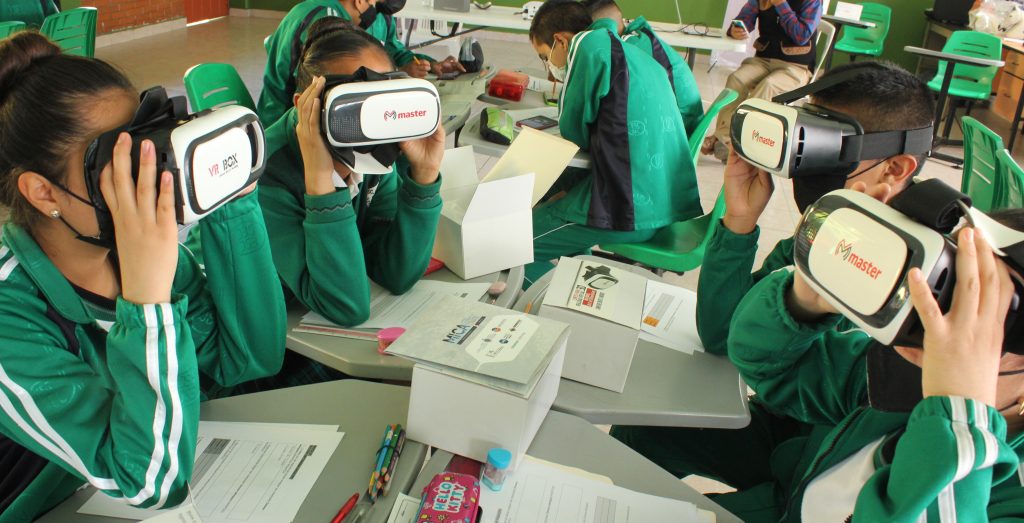
Students in Chile using interactive climate maps in a science class provided on the CREA platform. © Siemens Stiftung
Together with our Red STEM Latin America network, we have been working on a variety of projects dedicated to digital learning and teaching materials by providing OERs on the CREA (Centro de Recursos Educativos Abiertos) learning portal. The dynamic platform hosts over 1,700 learning materials in Spanish, co-created and curated by our regional network, based on the needs of the community (students and teachers) through an open design process. Here, the multi-media resources have been designed by involving educators in the process to ensure relevance to local curricula. Importantly, these OERs can be downloaded in areas with low to no internet connectivity and can be adapted and tailored according to local contexts across the globe.
From zero connectivity to state-of-the-art: The transformation in education is manifold with an increase in the uptake of AI and immersive ER learning technologies such as Augmented Reality (AR) and Virtual Reality (VR). They promise to create more engaging, customised, and effective learning opportunities. In Germany, there is momentum towards upgrading the classic classroom with high-tech equipment. By this year already, our foundation will offer a dynamic and interactive space at the (Science, Technology, Engineering, Mathematics, and Arts) STEAM Hub at Siemensstadt Square in Berlin. This open space will be a flexible and creative learning lab for students and educators to learn and design. User-centricity with a combination of modern technologies like AI, VR, and ChatGPT will complement the different learning styles of the diverse needs of the teachers and students. The new smart learning lab builds on our initiatives to involve school students in designing disruptive breakthroughs for everyday issues like nutrition, e-mobility, and sustainable textiles in the form of a ‘Make@thon’. The annual creative problem-solving challenge Make@thon is organised by the University of Osnabrück and hosted at the STEAM Hub.
Equity in education
The digital revolution harbours the potential to democratise access to education and promote educational equity by bringing people, communities, and countries together on a common platform providing access to learning materials which otherwise would have never reached them. On the flip side, we must remain aware of the risk that disparities in access to technology create another set of hurdles when it comes to aspiring for equal educational opportunities. With our partners, we constantly endeavour to bridge this gap by bringing communities together and connecting them with technology.
In sub-Saharan Africa, we have joined forces with the social enterprise BLUETOWN: Connecting the Unconnected which provides affordable internet connectivity in semi-urban and rural communities in Ghana. Our collaboration on the AccessSTEM project enables up to 3,500 students from four schools, 340 teachers and 4,000 teacher trainees to connect to BLUETOWN’s infrastructure and access digital learning and teaching materials on the local cloud. The project will improve teaching methods specifically in the STEM subjects and vocational orientation of students – training them in future skills and preparing them for the digital economy.
In today’s day and age, we face constant change and global disparities. As a foundation, we have realised that we can address global challenges only by connecting people, communities, and societies: be it at a higher level or by working with like-minded foundations alongside those in the corridors of power to foster a paradigm shift in education at a national policy level or working with social entrepreneurs to connect underserved students from remote areas with quality learning resources. The digital transformation in education encompasses the larger issues around diversity, equity, and inclusion. It allows greater reach and social cohesion by making education accessible, equitable, and just.
Dr Nina Smidt is the Managing Director and Spokesperson of the Managing Board of the International Siemens Stiftung (foundation).
To learn more about the different projects, get in touch with: Forum Education Digitization: Corinna.Hartung@siemens-stiftung.org; OER: Anna.Vater@siemens-stiftung.org; STEAM Hub: Franziska.Einem@siemens-stiftung.org; AccessSTEM: Jacqueline.Wiafe@siemens-stiftung.org.
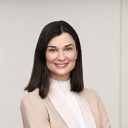

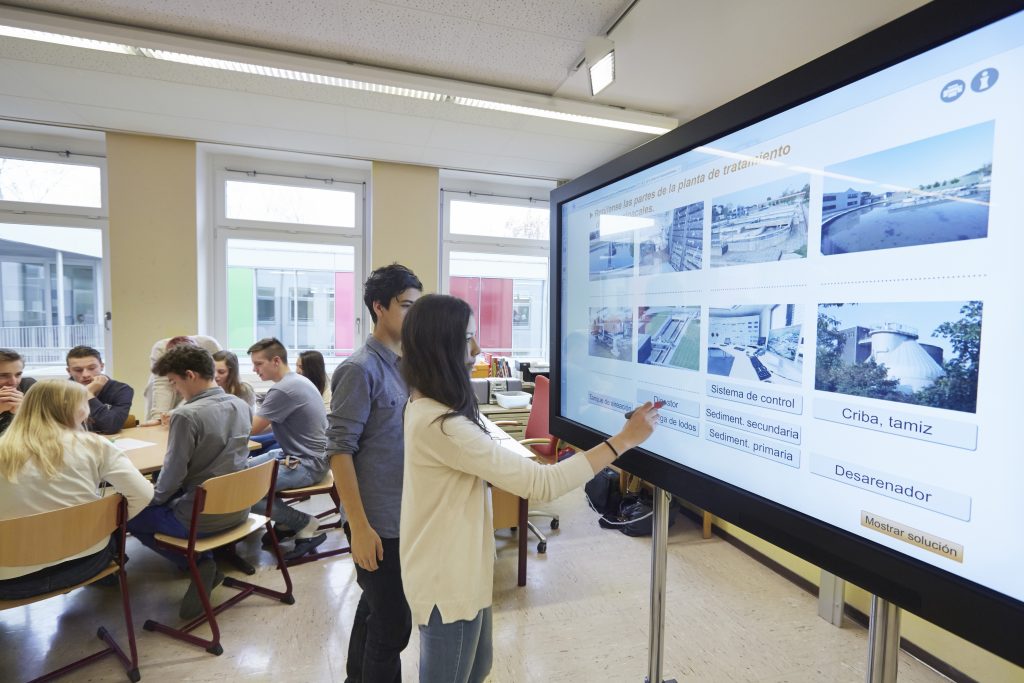
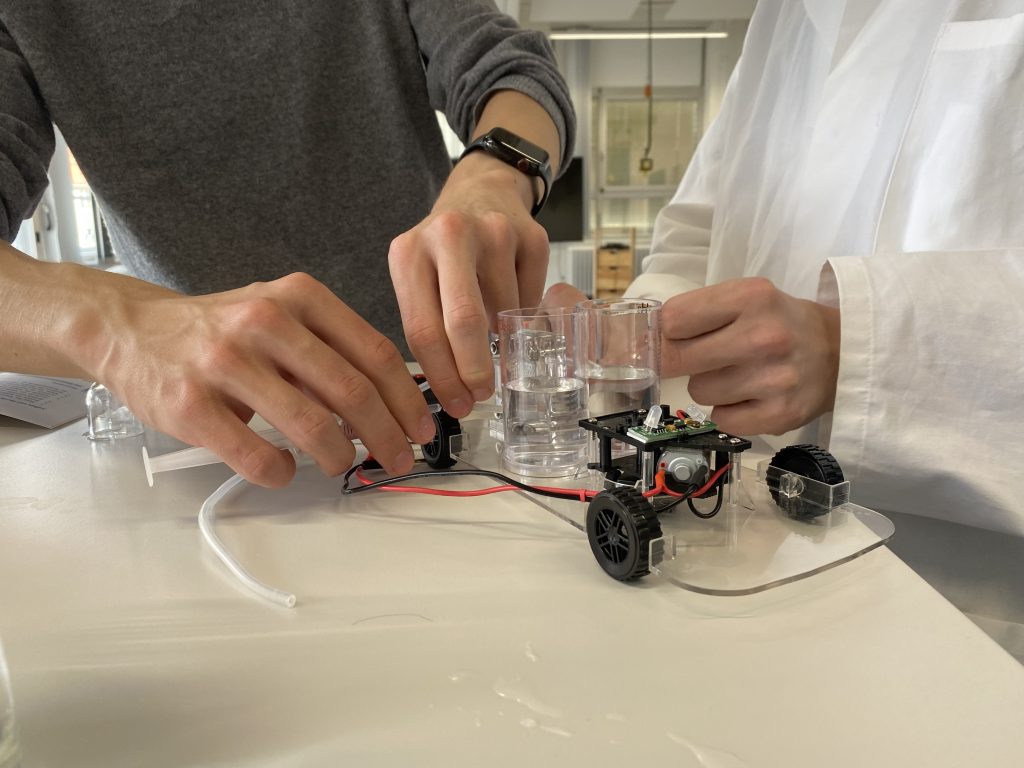
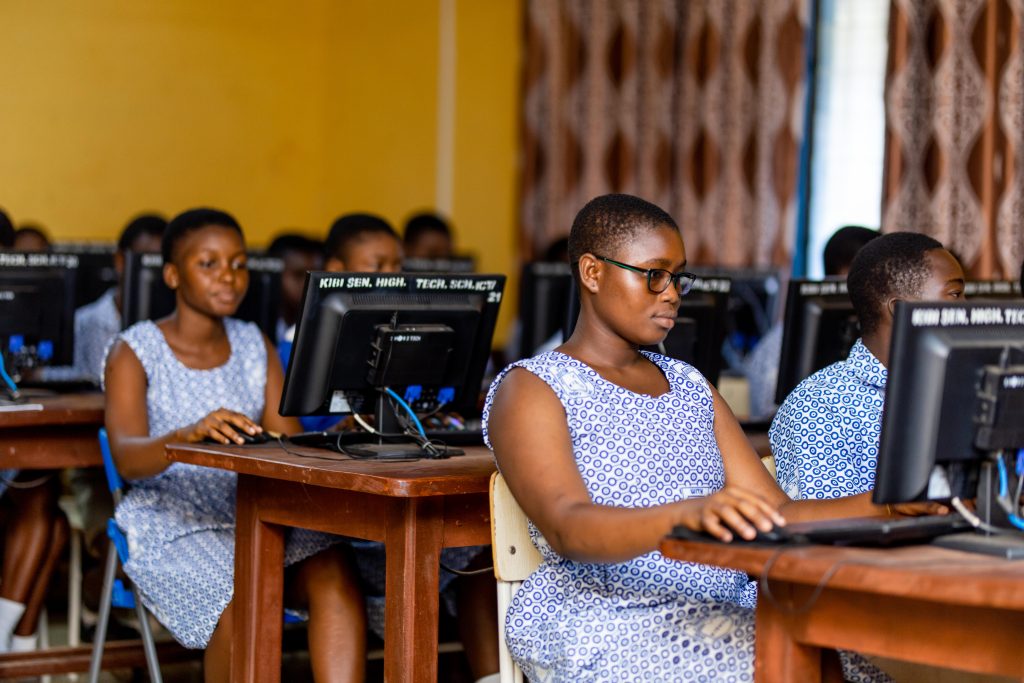

Comments (0)